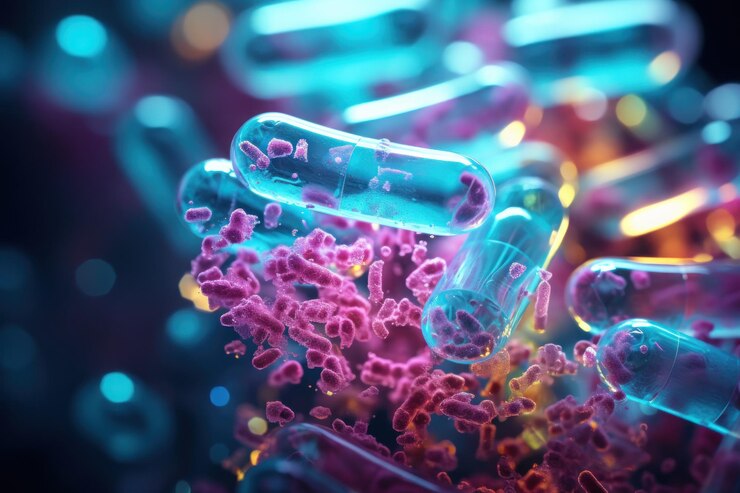A team at the BioGaia (Sweden) led by Ia Khmaladze (2019) report that L. reuteri DSM 17938 has anti-inflammatory properties and can protect against UVB-induced inflammation, making it potentially useful for skin conditions like photoaging and acne. Both live bacteria and lysate products of L. reuteri DSM 17938 have shown anti-inflammatory effects and can inhibit pathogenic skin bacteria. Further research is needed to explore the potential benefits of L. reuteri DSM 17938 for skin health and treatment possibilities.
SUMMARY
- The results demonstrate that L. reuteri DSM 17938 can protect against UVB‐induced inflammatory response which could be relevant in photo‐ ageing, UV‐R mediated inflammation prevention as well as other inflammatory skin conditions.
- The results clearly demonstrate that both live bacteria and the lysate of L. reuteri DSM 17938 has anti‐inflammatory activity against the UV‐R‐induced inflammatory cytokines IL‐6 and IL‐8 and an impact on skin barrier, using ex vivo models.
- Live L. reuteri had an inhibitory action against pathogenic skin bacteria
- It could be hypothesized that the live form of L. reuteri DSM 17938 could be used in management of skin issues related to photo ageing, bacterial overgrowth and skin hydration.
- These findings suggest usage of lactobacillus lysate for treatment of different skin inflammatory conditions such as AD and acne, which could potentially limit the usage of antibiotics, benzoyl peroxide and salicylic acid.
ABSTRACT
Human skin microbiota might play an important role in maintaining skin health and potentially prevent premature skin ageing. The use of probiotics in therapeutic skin applications is an attractive idea, as it could offer an alternative option for certain inflammatory skin disorders and dry or sensitive skin. Here, we investigated for the first time, a comparative study of live and the lysate products of probiotic strain Lactobacillus reuteri DSM 17938 in skin topical applications using ex vivo skin models focusing on anti‐inflammatory and skin barrier function and in vitro assays for antimicrobial activity. the results of this article in ultraviolet B radiation (UVB‐R) induced inflammation model demonstrated that both live bacteria and the lysate of L. reuteri DSM 17938 reduced proinflammatory IL‐6 and IL‐8, illustrated in both reconstructed human epidermis (RHE) and native skin models. Live L reuteri DSM 17938 significantly increased aquaporin 3 (AQP3) gene expression, while the lysate enhanced laminin A/B levels in a healthy (unstimulated) state of RHE, suggesting a positive impact on skin barrier. In addition, live L. reuteri DSM 17938 had antimicrobial action against pathogenic skin bacteria (Staphylococcus aureus, Streptococcus pyogenes M1, Cutibacterium acnes AS12, Pseudomonas aeruginosa), whereas the lysate did not have such an effect. Therefore, it is hypothesized that L. reuteri DSM 17938 could be beneficial for general skin health, to avoid the UVB‐R‐mediated inflammatory cascade and/or prevent photo-ageing, improve barrier function or in the management of unhealthy skin prone to inflammatory conditions due to its antimicrobial, anti‐inflammatory and skin barrier enhancing functions.
RESULTS
This article determined the effect of live L. reuteri DSM 17938 and its lysate on inflammation, pathogen inhibition and barrier function in human skin. These mechanisms would be important targets for the management and protection of damaged or unhealthy skin, prone to different inflammatory skin conditions.
There is a strong evidence for the potential use of orally administered probiotics in skin health, but as the FIGURE 3 shows, Topical application of live Lactobacillus reuteri DSM 17938 has a positive effect on skin AQP3 and KLK5 gene expression and the lysate upregulates laminin A/B.
CONCLUSION
- The results clearly demonstrate that L. reuteri DSM 17938 lysates has anti‐inflammatory potential in UVB‐R‐induced inflammation ex vivo skin model.
- L. reuteri DSM 17938 can protect against UVB‐induced inflammatory response (Figures 1 and 2) which could be relevant in photo‐ ageing, UV‐R‐mediated inflammation prevention as well as other inflammatory skin conditions.
- Both live bacteria and the lysate products of L reuteri DSM 17938 have anti‐inflammatory activity against the UV‐R‐induced inflammatory cytokines IL‐6 and IL‐8 and an impact on skin barrier, using ex vivo models.
- The lysates could be used in skincare where an anti-inflammatory action is needed.
- the lysate upregulates laminin A/B thus the application of lysates is beneficial in preserving skin hydration.
REFERENCES

Leave A Comment